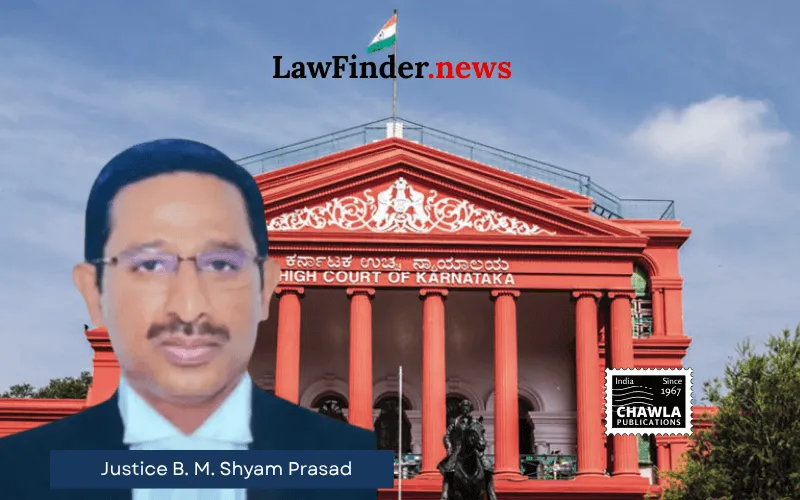Supreme Court simplified and redefined law of arrest and bail for Judicial Officers, Advocates and Police Officers in Satender Kumar Antil v. Central Bureau of Investigation
In Satinder Antil case Supreme Court issued comprehensive guidelines to safeguard liberty and streamline bail process in India, emphasizing "Bail is the rule, jail is the exception," Court directs Police, Courts, and Governments to ensure fair arrests, expedite trials, and prevent undertrial overcrowding
The Supreme Court of India in Satender Kumar Antil v. Central Bureau of Investigation has laid down detailed guidelines aimed at safeguarding the fundamental right to personal liberty under Article 21 of the Constitution and streamlining the grant of bail in criminal cases across the country. The ruling addresses long-standing issues such as unnecessary arrests, overcrowding of undertrial prisoners, delay in trials, and inconsistent bail practices.
The Court reaffirmed the presumption of innocence, emphasizing that bail is the rule and jail is the exception, and cautioned against the routine or mechanical arrest of accused persons, especially in cases punishable with imprisonment of seven years or less. Police officers are mandated under Section 41 of the Criminal Procedure Code to record in writing the reasons for making or not making an arrest, ensuring that arrests are made only when necessary to prevent further offenses, tampering of evidence, inducement of witnesses, or to secure the accused's presence in court.
Further, the Court categorised offences into four categories for guiding bail considerations:
- - Category A: Offences punishable with imprisonment up to seven years (excluding special or economic offences).
- - Category B: Offences punishable with death, life imprisonment, or more than seven years.
- - Category C: Offences under special Acts with stringent bail provisions, such as NDPS, PMLA, UAPA.
- - Category D: Economic offences not covered by special Acts.
The judgment elucidates that for Category A offences, courts should initially issue summons and only escalate to warrants in cases of non-appearance, with bail applications possibly decided without physical custody. For Categories B, C, and D, bail applications are to be considered on merits, with additional compliance to specific statutes where applicable.
The Supreme Court also dealt with procedural aspects, ruling that under Section 170 CrPC, the filing of a charge-sheet does not mandate arrest or production of the accused in custody if they have cooperated with investigation and are not likely to abscond. Trial courts are instructed to accept charge-sheets without insisting on arrests in such cases.
Importantly, the judgment underscores the need for speedy trials and directs courts to conduct proceedings on a day-to-day basis as per Section 309 CrPC, minimizing adjournments. Delays in trials and appeals are recognized as violations of Article 21, warranting bail or release measures such as under Section 436A CrPC, which provides for release of undertrial prisoners detained beyond half the maximum sentence period.
The Court further advised that courts must exercise discretion judiciously, considering factors like the accused's age, health, gender, and social conditions, especially for women and minors who often bear the brunt of incarceration. It highlighted the plight of children living in prisons with their mothers and urged courts to be sensitive to such humanitarian concerns.
Drawing from international jurisprudence, including Canadian and American laws, the judgment advocates for non-excessive bail conditions and cautions against imposing financial bonds that poor accused cannot meet, thereby perpetuating inequality.
The Court issued a series of directions:
- - Governments to issue standing orders aligning with Sections 41 and 41A CrPC for arrest and notice procedures.
- - Courts to verify compliance of police with arrest procedures before authorizing detention.
- - Bail applications to be disposed of within two weeks; anticipatory bail within six weeks, barring intervening applications.
- - High Courts and State Governments to expedite constitution and staffing of special courts.
- - Identification and release of undertrial prisoners unable to meet bail conditions, in line with Section 440 CrPC.
- - Consideration for introduction of a dedicated Bail Act by the Government of India to streamline procedures.
The Supreme Court underscored the role of criminal courts as guardians of liberty, cautioning against misuse of criminal law for harassment and emphasizing the balance between societal interests and individual freedoms.
This comprehensive judgment is expected to significantly reduce unnecessary arrests, decongest prisons, and ensure the fundamental right to liberty is not undermined by procedural lapses or delays in the criminal justice system.
Satender Kumar Antil v. Central Bureau of Investigation (SC) : Law Finder Doc id # 2011291




